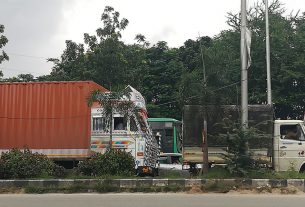Indians are facing issues in pursuing jobs in the United States because of the tightening of the H-1B visa rules.
By Hansy Sanctis
Bangalore, Jan 31, 2019: The infamous American H-1B visas selection has been turning hostile towards Indian employees who have been trying to move abroad for their work. The United States government has tightened the visa application process, especially from the beginning of 2017. In March 2018, they even temporarily suspended the premium processing of the visa. The restrictions that have been imposed are going to affect the application processes of many Indians who are trying to settle abroad for work and for advanced studies.
The H-1B visa is a non-immigrant visa given by the United States government to employ skilled workers from other countries in various specialised fields of occupation and for a certain period of time which may vary from a few months to a yearly basis.
In February 2018, the Trump administration announced a new visa policy that made the procedure of issuing H-1B visas even more difficult because the issuing varied from what it used to be. The administration had proposed many amendments to the H-1B visa rules to make it tougher.
Under the existing laws in the US, foreign professionals having an H-1B visa can remain in the country for up to six years. It is initially for three years but can be extended for an additional three years. However, under new proposed amendments, the United States Citizenship and Immigration Services (USCIS) may limit the duration to less than three years in cases where the companies or the applicants fail to meet the required criteria.
The companies that bring in the most H-1B workers, however, are not Silicon Valley tech firms but IT services firms, many based in India, that specialize in consulting or outsourcing. These companies, which include Tata Consultancy Services, Cognizant, Infosys, Wipro, Accenture, IBM India, and Deloitte, are contracted by other companies to do IT work.
Vijay Chandan Patel, from Bangalore, applied for the visa three times for the past two years, only to be rejected on all three occasions. Expressing his anger on the subject, he said – “The reason for my visa application being scrapped wasn’t even specified. On questioning the officials about this, they only replied with a courteous tone on how I should apply again. But after the third attempt, my patience did reach the brim of saturation, which made me lose all optimism of ever working in the United States.”
According to an analysis by Indian native professor Ronil Hira, who teaches public policy at Harvard University, published in the Harvard Business Review in 2014, nearly one-third of new H-1B visas went to 13 of these so-called “outsourcers.” (Tata received the most visas, with 5,650 employees recruited, while Amazon got 877).
The financing, the lawyers, the paperwork, doesn’t provide companies with any incentive to hire such workers who are looking to secure an H-1B visa. As a result, they end up hiring local legal workers.
The Department of Homeland Security (DHS) posted today on the website of U.S. Citizenship and Immigration Services (USCIS), a final rule amending the H-1B regulations governing the regular cap and the advanced degree exemption. It introduces an electronic registration requirement for petitioners seeking to file some H-1B petitions. It will go into effect on April 1, 2019, though the electronic registration requirement will be suspended for the fiscal year of 2020.




